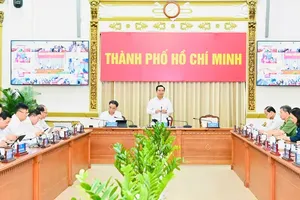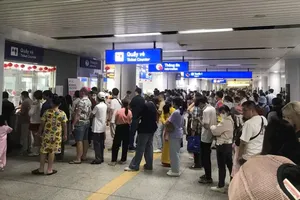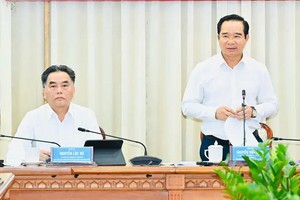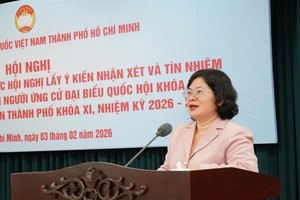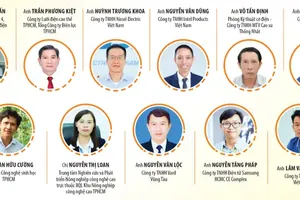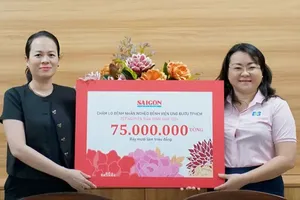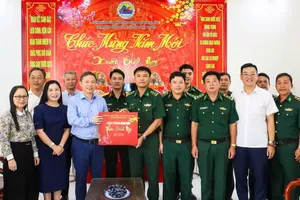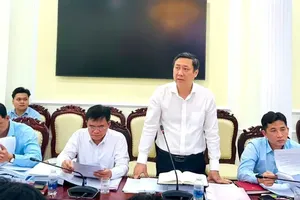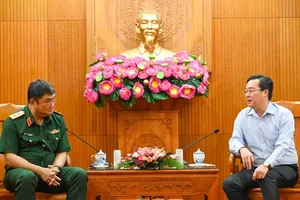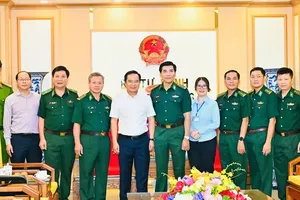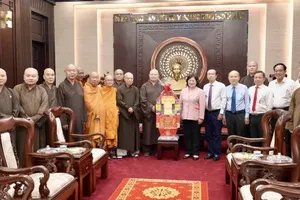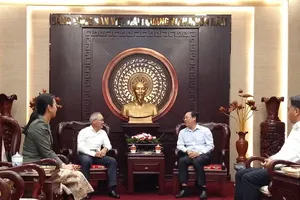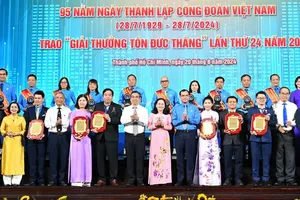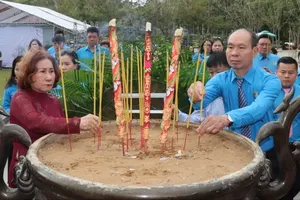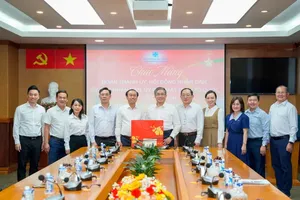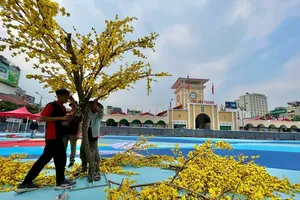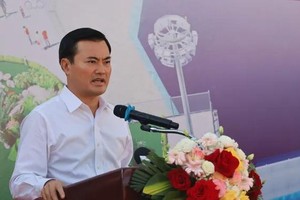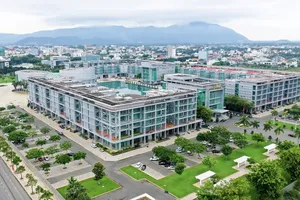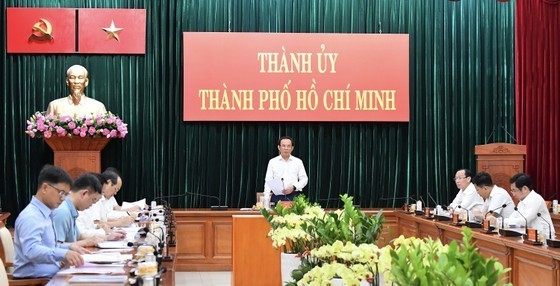 |
Mr. Nguyen Van Nen, Secretary of the HCMC Party Committee, speaks at a meeting of the HCMC Steering Committee on Prevention and Control of Corruption and Negative Phenomena. |
On the afternoon of October 31, the Permanent Committee of the HCMC Party Committee held a discussion with the media concerning Regulation 1629, issued by the Standing Committee of the HCMC Party Committee, which pertains to the procurement and handling of information for the purposes of combating corruption and addressing negative activities within the city.
The Permanent Committee of the HCMC Party Committee asserts that the introduction of Regulation 1629 is one of the synchronous measures aimed at addressing corruption and negative activities within the city. The city's objective is to translate the Party's resolute stance against corruption and negative behaviors into practical action.
Achieving this necessitates the development of many solutions, plans, and programs. In 2022, HCMC established the Steering Committee on Prevention and Control of Corruption and Negative Phenomena. Drawing from the central government's guidelines and the practical experiences of various provinces and cities while considering the city's unique circumstances, the Standing Committee of the HCMC Party Committee has unanimously approved the issuance of Regulation 1629.
According to the Permanent Committee of the HCMC Party Committee, Regulation 1629 represents a continuation and improvement of Regulation 1374 issued by the Standing Committee of the HCMC Party Committee. The primary objective of Regulation 1629 is to enhance the sense of responsibility among city officials and Party members while also fostering the active participation of the public and socio-political organizations in contributing to the city's development, especially in the fight against corruption and negative activities.
The city's foremost aspiration is to prevent, deter, and caution officials and Party members. Simultaneously, it hopes that, in the spirit of responsibility for the beloved city, Regulation 1629 will inspire city officials to continue to be proactive, dare to think, and dare to take action for the common good, effectively contributing to the realization of Conclusion 14 issued by the Politburo, which emphasizes the promotion and protection of active and creative officials for the common good.
Similarly, as per the Permanent Committee of the HCMC Party Committee, when a significant policy is put forth by the Standing Committee of the HCMC Party Committee, the paramount aspiration is for its efficacy following its implementation. This includes its practical applicability in daily life, the functioning of government agencies and Party entities assigned with the task, and the collaboration, trust, and support of citizens and enterprises, as well as various societal segments.
The Permanent Committee of the HCMC Party Committee is confident that Regulation 1629, in conjunction with the existing city regulations, will play a significant role in advancing the city's development, combatting corruption and inefficiency, and tackling the problem of officials avoiding, evading, and being afraid of responsibility.
The Permanent Committee of the HCMC Party Committee places its trust in the people, officials, and Party members of the city to actively participate in providing information and reporting on corruption and negative activities. The primary objective is to engage in the fight against these issues and contribute to the city's development rather than seeking personal gain.
The Permanent Committee of the HCMC Party Committee underscores that well-informed and united public involvement enhances the effectiveness of these efforts. Hence, the inclusion of the "information purchase" practice, as outlined in Regulation 1629, serves as one method to encourage citizen participation. Simultaneously, it reinforces the responsibilities of both information providers and those who receive and process the information.
The Permanent Committee of the HCMC Party Committee further asserts that the regulation clearly defines the procedure for safeguarding information providers. Moreover, other legal provisions consistently ensure the protection of information providers and those who counter erroneous viewpoints.

